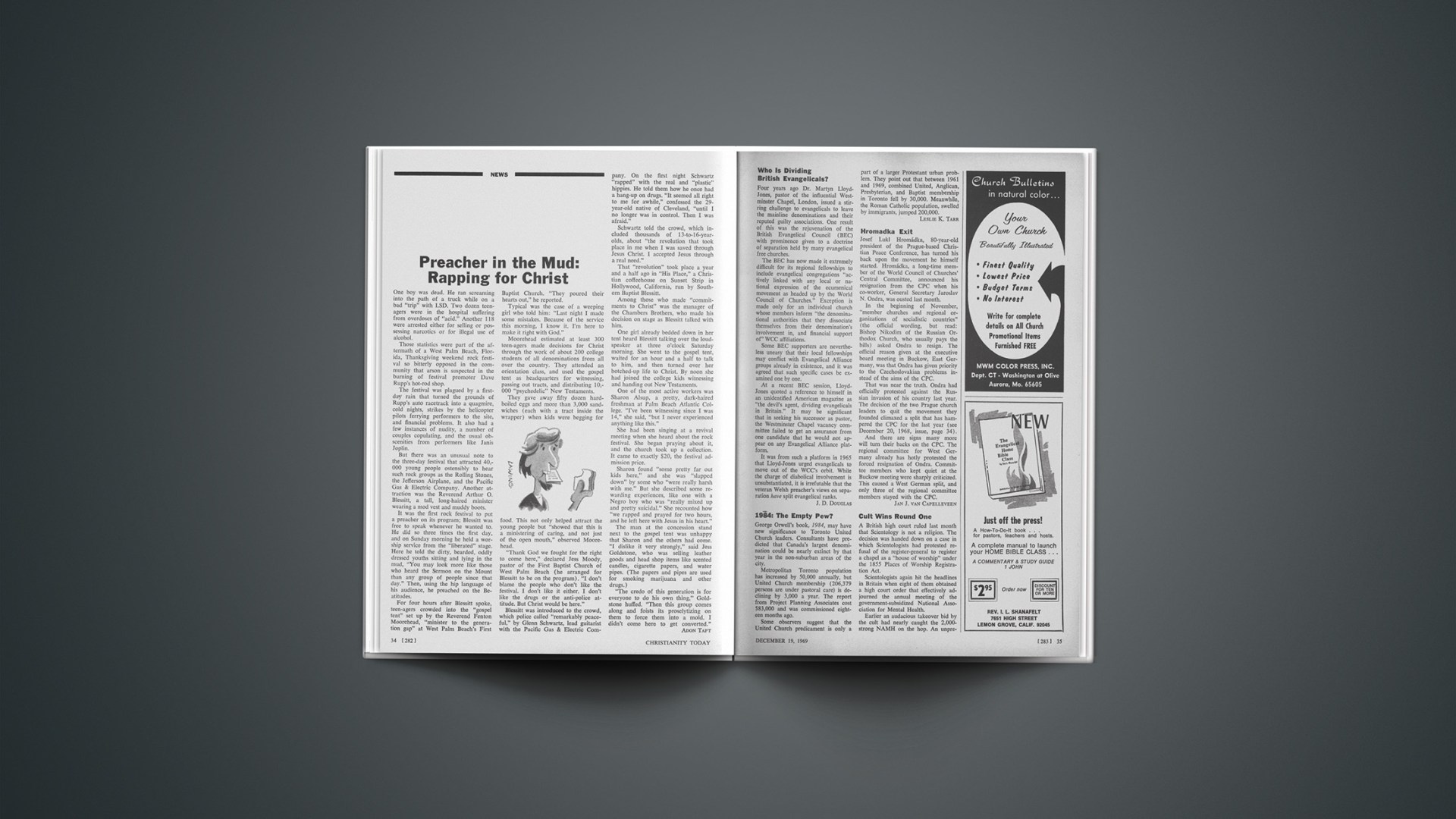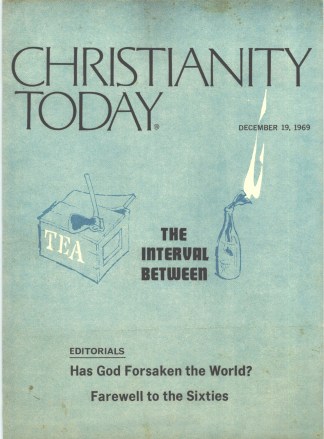A British high court ruled last month that Scientology is not a religion. The decision was handed down on a case in which Scientologists had protested refusal of the register-general to register a chapel as a “house of worship” under the 1855 Places of Worship Registration Act.
Scientologists again hit the headlines in Britain when eight of them obtained a high court order that effectively adjourned the annual meeting of the government-subsidized National Association for Mental Health.
Earlier an audacious takeover bid by the cult had nearly caught the 2,000-strong NAMH on the hop. An unprecedented flurry of new members (about 250 during the previous month alone) marked the Scientological strategy, and clearly had implications for the annual NAMH meeting, where attendance did not normally exceed 500. When ofiicials tumbled to what was going on, the association froze membership until after the meeting. (For a two-part report on Scientology, see the November 7 and 21 issues of CHRISTIANITY TODAY.)
The ground had obviously been carefully laid by the devotees of Scientology, unabashed by the British Minister of Health’s description last year of their philosophy as “socially harmful,” and alert to the possibilities of slapping a writ on critics before you can say “L. R. Hubbard.” His followers complain that for years they had been snubbed in their attempts to “meet NAMH representatives to cajole or jolt the association into some sort of action to get a Bill of Rights for mental health patients.” They decided to put the pressure on after government inquiries had disclosed staff misbehavior at some of the country’s mental health institutions.
J. D. DOUGLAS










